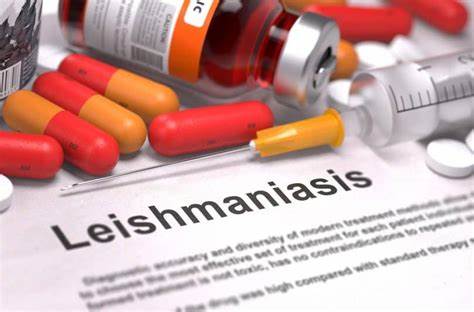Gambling Disorder on the Rise, but Often Overlooked
Gambling is often viewed as a form of entertainment, a harmless pastime that many people partake in for fun or relaxation. However, for some individuals, gambling can spiral into a serious disorder that takes a significant toll on their physical, emotional, and financial well-being. In recent years, gambling disorders have become an increasing concern, with the condition being officially recognized in the Diagnostic and Statistical Manual of Mental Disorders, Fifth Edition (DSM-5). Yet, despite this recognition, gambling disorder is still often overlooked, particularly in the primary care setting, where it intersects with a wide range of other health issues.
A recent meeting of Gamblers Anonymous in Los Angeles highlighted this growing issue. Ten individuals, all of whom had struggled with gambling problems in the past, gathered at a local park for their regular session. During the meeting, they shared their experiences and advice for how physicians can better recognize and address gambling problems among their patients. Their stories emphasized a common theme: healthcare providers are rarely asking their patients about gambling, despite its significant impact on their lives.
One participant shared that when patients speak about financial distress, marital problems, physical health issues, or even high blood pressure, physicians should consider gambling as a possible contributing factor. The participants agreed that many people struggling with gambling are often reluctant to admit to their addiction, with some brushing off the issue by saying, “Just a little,” when asked about their gambling habits. This dismissal, they warned, is often an indication of an active gambling problem.
The reality is that gambling disorder often flies under the radar, with many individuals suffering in silence, unaware of how their behavior is affecting their lives and their health. Yet, with its growing prevalence, it is crucial that physicians and healthcare providers become more aware of the signs and symptoms of gambling disorder to help patients before it’s too late.
The Growing Concern of Gambling Disorder
Gambling disorder, previously known as compulsive gambling, is characterized by an uncontrollable urge to gamble despite the negative consequences. Individuals with this disorder may struggle to stop gambling, even when it causes significant distress in their personal relationships, financial stability, and physical health. The disorder can lead to a wide range of psychological and emotional problems, including depression, anxiety, and suicidal thoughts, as well as physical issues related to stress, such as high blood pressure and sleep disturbances.
According to the National Council on Problem Gambling, approximately 2 million adults in the U.S. are estimated to have a severe gambling problem, while an additional 4 to 6 million adults experience some form of gambling-related harm. These numbers have been steadily rising, fueled in part by the increasing availability of gambling options through online platforms, sports betting, and the expansion of casinos.
Gambling disorder is now recognized in the DSM-5, placing it alongside other behavioral addictions such as substance use disorders. This classification highlights the seriousness of the condition and the need for appropriate treatment. The disorder shares many similarities with substance-related disorders, particularly in terms of the brain’s reward system. Research has shown that gambling activates the same neural pathways as drugs and alcohol, leading to the release of dopamine, the brain’s “feel-good” chemical. Over time, individuals with gambling disorder may require larger amounts of gambling to achieve the same level of satisfaction, leading to a cycle of escalating behavior.
The Intersection of Gambling Disorder and Physical Health
While gambling disorder is often viewed as a psychological issue, it has significant physical health implications as well. In many cases, individuals with gambling problems may not immediately recognize the link between their behavior and their physical symptoms. Instead, they may seek medical treatment for issues such as anxiety, depression, insomnia, high blood pressure, or digestive problems, without ever mentioning their gambling habits to their healthcare provider.
As the Gamblers Anonymous members pointed out, physicians should be alert to the possibility that gambling is contributing to or exacerbating these health conditions. For example, the stress and anxiety associated with gambling can lead to elevated blood pressure, which, in turn, increases the risk of heart disease. Similarly, the guilt and shame associated with gambling can result in mental health issues such as depression and anxiety, which may require treatment in their own right.
Moreover, the financial strain caused by gambling can lead to physical symptoms of stress, such as headaches, muscle tension, and gastrointestinal issues. These physical manifestations of stress may be more obvious to healthcare providers, but unless gambling is specifically addressed, it is unlikely that the root cause of the problem will be identified.
One of the most alarming aspects of gambling disorder is its potential for severe psychological distress. The emotional toll of gambling can lead to a range of mental health problems, including depression, anxiety, and even suicidal thoughts. In some cases, individuals may resort to drastic measures to cover up their losses, such as borrowing money, engaging in illegal activities, or even resorting to self-harm.
As the Gamblers Anonymous members shared in their meeting, many individuals with gambling disorders feel trapped and isolated, unable to break free from the cycle of addiction. The stigma surrounding gambling addiction often makes it difficult for people to seek help, as they may fear judgment or ridicule from others. This isolation can worsen the emotional toll of the disorder, further exacerbating the physical and mental health problems it causes.
The Role of Primary Care Physicians in Detecting Gambling Disorder
Primary care physicians (PCPs) are often the first point of contact for patients seeking help for various physical and mental health issues. As such, they are in a unique position to identify individuals at risk for gambling disorder. However, many PCPs are not trained to recognize the signs of gambling addiction, which can manifest in subtle ways that overlap with other health concerns. This lack of awareness can result in missed opportunities for intervention, leaving patients to suffer without the help they need.
Experts suggest that PCPs should be proactive in asking patients about their gambling habits, especially when they present with symptoms of stress, anxiety, or financial distress. Questions about gambling may feel intrusive, but they can be the key to identifying a problem before it spirals out of control. One way to approach the topic is by integrating questions about gambling into routine screenings for other behavioral health concerns, such as substance abuse or mental health disorders.
The Gamblers Anonymous members noted that many of them had never been asked by their doctors about gambling, even though they were experiencing significant problems in their lives. If physicians had broached the subject earlier, they may have been able to help these individuals address their gambling issues before they caused irreparable harm to their relationships, finances, and health.
A simple screening question, such as, “Do you ever gamble?” or “Have you experienced financial difficulties related to gambling?” can open the door for further discussion. While it may not always lead to an immediate diagnosis, it can provide the opportunity for patients to share their struggles and seek the appropriate treatment.
Treatment and Support for Gambling Disorder
While gambling disorder can be a challenging condition to treat, there are a variety of therapeutic approaches available to help individuals regain control of their lives. Behavioral therapies, such as cognitive-behavioral therapy (CBT), have been shown to be effective in treating gambling addiction by helping individuals identify and change the thought patterns that drive their compulsive behavior. In addition, support groups such as Gamblers Anonymous provide a sense of community and accountability, which can be invaluable for individuals working toward recovery.
Medications may also be prescribed in some cases to help manage the symptoms of gambling disorder, particularly when the disorder is linked to underlying mental health issues such as depression or anxiety. These medications can help reduce the cravings and compulsive behaviors associated with gambling, making it easier for individuals to stay focused on their recovery goals.
Importantly, treatment for gambling disorder often requires a holistic approach that addresses both the psychological and physical aspects of the condition. Healthcare providers, including PCPs, mental health professionals, and addiction specialists, should work together to create an individualized treatment plan that addresses all aspects of the patient’s well-being.
The Urgent Need for Awareness
Gambling disorder is a growing problem that is often overlooked by healthcare providers, despite its significant impact on physical, mental, and financial health. As the disorder becomes more prevalent, it is essential that physicians and other healthcare providers become more proactive in recognizing the signs and symptoms of gambling addiction. By asking the right questions and providing appropriate treatment and support, healthcare professionals can help individuals with gambling disorder regain control of their lives and improve their overall well-being. The time has come to acknowledge gambling disorder as a serious health concern and ensure that patients receive the help they need before it’s too late.














